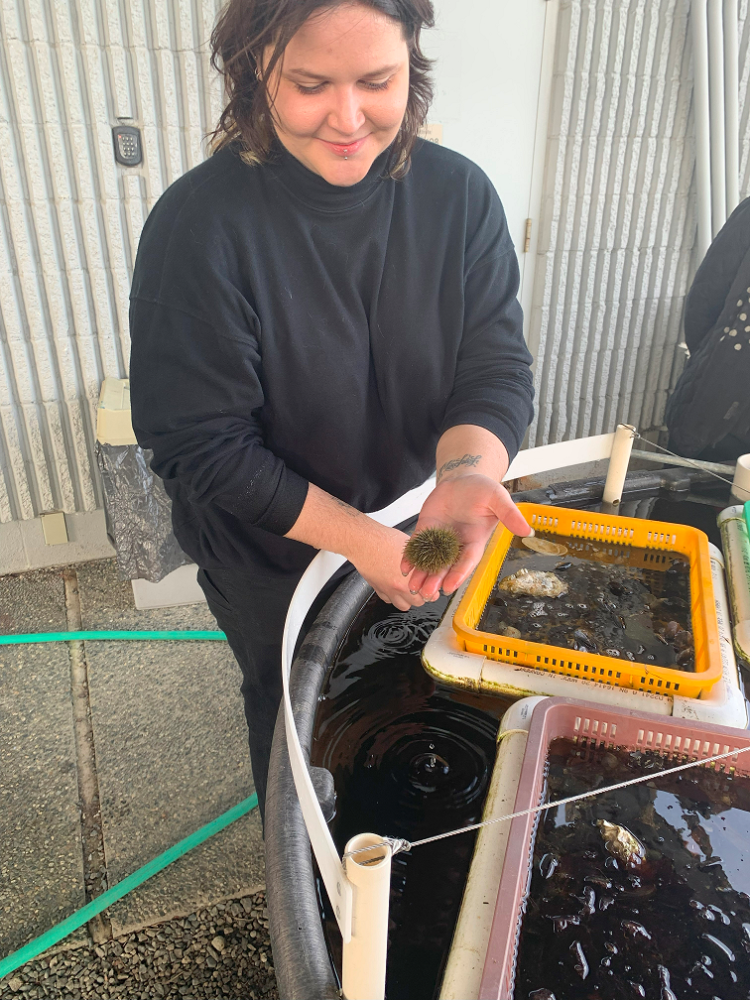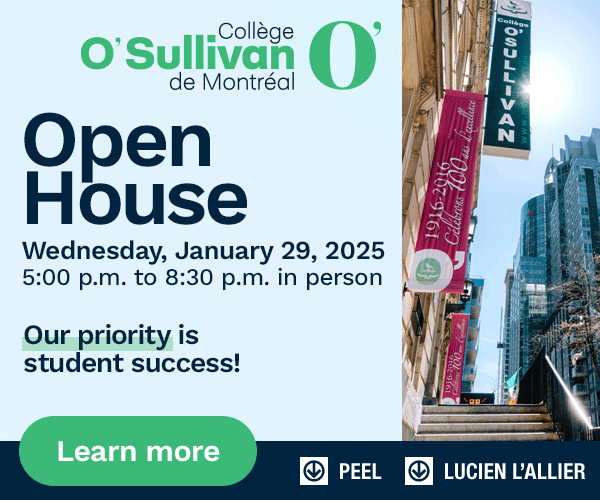Marine foods have been harvested by Indigenous communities since time immemorial, but climate change and other environmental impacts are putting the safety of food sources at risk.

VIU Biology student Chloe McLaughlin is developing a method to determine levels of paralytic shellfish poisoning in urchins as part of the collaborative research project. Photo Credit: Emma Dickinson
A collaboration between the Canadian Food Inspection Agency's (CFIA's) Burnaby Laboratory, Vancouver Island University (VIU) and Indigenous communities aims to increase food security and sovereignty.
"In the search for safe and sustainable food sources in changing ocean environments, there will always be more questions to be answered than there are fish in the sea," said Carolyn Bateman, Director of the CFIA's Burnaby Laboratory. "It's only by pooling our expertise and helping each other with the science that we can answer some of these questions together."
Dr. Timothy Green, VIU's Canada Research Chair in Shellfish Health and Genomics, said there are a range of marine biotoxins that phytoplankton produce and two of these are lethal to humans.
"We can't taste them. We can't cook them out of the food. These toxins are a concern if you eat shellfish from areas that are not monitored," said Green.
Shellfish are filter feeders and can accumulate biotoxins in their tissues. There is a federal program that tests for these biotoxins, but most testing is set up around commercial aquaculture and the wild fishery, explained Green. The 2024 federal budget identified funds over two years to explore ways to enhance support for Indigenous communities harvesting shellfish for food, social and ceremonial purposes. This work can help inform future strategies to modernize how the program is delivered.
"It's challenging to meet the needs of traditional harvesting by Indigenous communities, which are often remote. British Columbia's vast coastal geography makes timely lab access a challenge - and timeliness is important for shellfish products that are consumed fresh," said Green.
VIU is working on two projects with the CFIA: sample preparation and sea urchin testing. VIU researchers are looking into sample preparation in the field and at alternate sites to send to the Burnaby Laboratory for testing. Green said shucking the shellfish and sample preparation in the lab takes time. Reducing this step for the CFIA allows the organization to redirect resources from shucking and sample preparation to increase testing capacity.
"Knowledge transfer happens organically when we work side-by-side. CFIA is thrilled to be a partner on the bench with VIU, building internal and external laboratory capacity in the shellfish sector," said Bateman.
VIU Biology student Chloe McLaughlin is developing a method to determine levels of paralytic shellfish poisoning (PSP) in urchins. McLaughlin said research outside of Canada has found detectable levels of PSP toxin in urchins. There is speculation on how urchins accumulate the toxin in their bodies, and how high the risk is in terms of human consumption. Currently, sea urchins are infrequently tested.
McLaughlin's work includes developing the feeding protocol for urchins. She feeds the urchins to see how much of the toxin is consumed to incur a sample with detectable toxins and how long after they've consumed toxin-positive material it takes for them to purge the toxin and test negative. This is important information for supporting food safety, security and economic industry.
"Some of the testing that works for bivalves doesn't work the same for sea urchins because of the different components of their body chemistry," said McLaughlin. "Urchins can only eat so much, so what is the environmental risk to humans? And can we expect them to be positive and have a high toxin level during toxic algae blooms?"
"The relationship between VIU and CFIA is invaluable," said Bateman. "Together we can answer questions about risk and opportunity that would have been challenging or impossible to answer otherwise."













